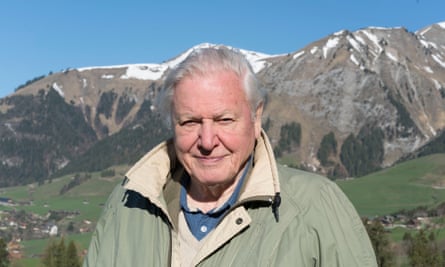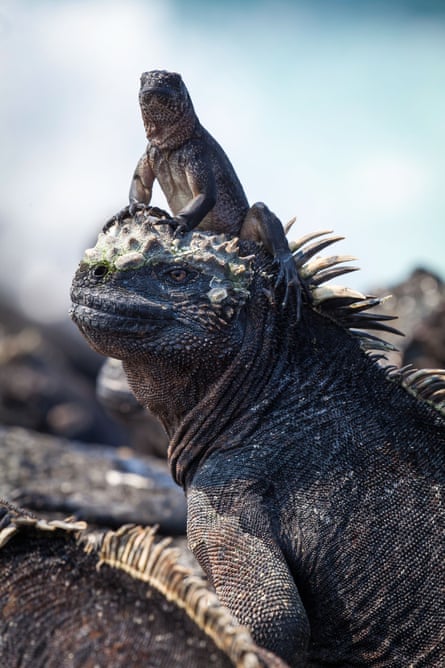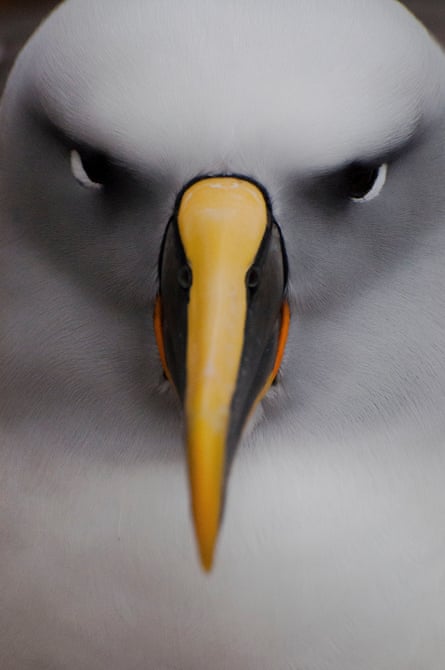A lone eagle soars high above craggy mountain tops, the tips of its wings lifting lightly in the wind. A lemur leaps from tree to tree in a dense forest, the camera following the animal with every bound. An enormous grizzly bear wriggles his back against a tree, as if caught in an embarrassing dance.
This is planet Earth, but not as you have ever seen it before. That’s because, more accurately, it is Planet Earth II, the latest – and perhaps most spectacular – blockbuster nature series the BBC has ever made.
Ten years after Sir David Attenborough narrated the channel’s groundbreaking epic Planet Earth, the 90-year-old broadcaster has returned for part two, a lavish six-part series that will screen on BBC1 from Sunday 6 November.
Shot over three years in 117 filming trips to 40 countries, it is one of the first series to be fully filmed in the latest UHD and HDR formats, according to the BBC, and features countless sequences that could not have been achieved without new, ultra-lightweight cameras and drones.

Having worked on both series, Attenborough said: “I can say that the technology and the shots are unparalleled. You couldn’t do those shots 10 years ago.”
The veteran broadcaster did not, this time, accompany film crews around the world, apart from a high balloon trip to record his introduction to the series. But fans of Attenborough need not feel deprived: to accompany the series the BBC is also launching a free app, The Story of Life, which will contain an archive of 1,000 five-minute clips from the broadcaster’s 60-year career, searchable by habitat, species and behaviour.
It is a measure of how important Planet Earth II is to the sometimes embattled BBC that at a packed screening in London this month for national and international press, the warm-up man was Tony Hall, the broadcaster’s director general.
“The BBC of course is always undergoing change, we’re having to go through things differently and cope with different demands on us,” Hall said. “But one thing I absolutely promise you [is] that the Natural History Unit is one of the absolute gems of the BBC … and my commitment and the BBC’s commitment to it is absolutely there, now and into the future.”
That commitment – meaning time and resources – certainly shows. The series is soundtracked by the Oscar-winning composer Hans Zimmer, who scored The Lion King, Gladiator, and The Dark Knight trilogy, among many others. Asked how composing for animals compared, Zimmer said: “We treat it entirely as a drama, which of course it is.”
Attenborough said his favourite part in the series was a sequence filmed among snow leopards in the Himalayas, where scientists were able to observe the animals’ rarely witnessed communication rituals using urine (or “pee-mail”), in part thanks to the unobtrusive new cameras used by the film-makers.
But the stars are not only of the cuddly kind. The opening episode, themed around islands, contains a sequence in which newly hatched marine iguanas from the Galapagos were filmed making a dash for the sea while pursued by racer snakes – an exhilarating few minutes that provoked gasps at the press screening, and which Attenborough admitted had surprised even him.

One episode will also focus on cities, featuring a population of urban leopards in Mumbai – home to the highest concentration of the animal in the world – which were filmed as if in a police chase, captured on surveillance cameras. The film-makers also perched on skyscrapers in New York to film the peregrine falcons that have colonised their heights.
“We decided it would be really interesting to show how animals are adapting, and for the most part [the cities episode] is a celebration of the amazing endeavour of animals,” said the series producer, Tom Hugh-Jones. But while some species have adapted to urban environments, he said, “David does a very poignant wrap-up to explain that for most animals, what we are doing to the planet is a bit of a tragedy.”
Asked if, on his return to Planet Earth, he felt optimistic for planet Earth, Attenborough told the Guardian: “There are almost overwhelming reasons to be pessimistic, I’ll say that.” On the other hand, he said, numerous countries had got together to address the hole in the ozone layer, and were able to agree measures to reverse the damage.

“The problem we have got now is much more widespread and more deeply seated than the ozone problem was, and it’s got worse because of the growing population. But we got together then, and I believe we are on the verge of getting together now. It isn’t as though we don’t understand what the problem is, or we don’t have the ways of solving it. We do.”
With more than half the world’s population living in cities, said Attenborough, “More people are out of touch with the natural world than has ever been. But since we depend on the natural world, understanding it is absolutely paramount. Television can provide that link better than ever before, in some ways.
“Fifty years ago, there was hardly a species on [Planet Earth II] that anyone would have seen. Now everybody has. It’s remarkable, and it’s valuable.”

Comments (…)
Sign in or create your Guardian account to join the discussion